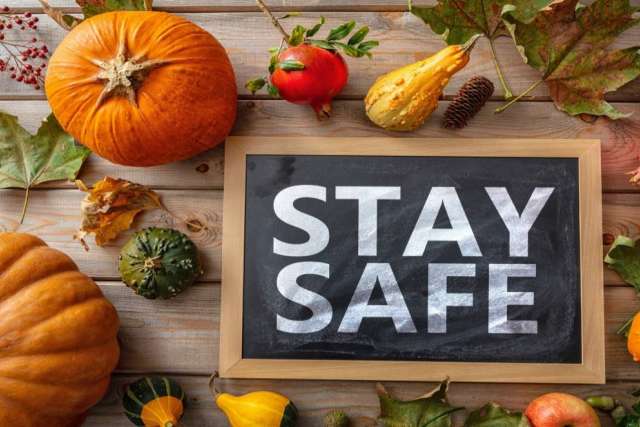Vaccines have changed the outlook for holiday gatherings in 2021.
A year ago, cautiously planned Thanksgiving get-togethers preceded a deadly surge in COVID-19 cases. Now, with more than 73% of Los Angeles County residents age 12 and older fully vaccinated, it’s shaping up to be a much safer holiday season, says Annabelle de St. Maurice, MD, MPH, a pediatrician and infectious disease expert at UCLA Health.
If you’re planning an in-person event for Thanksgiving, “the safest thing to do is to make sure that every person is fully vaccinated,” Dr. de St. Maurice says. “Transmission can occur from fully vaccinated people, but it definitely reduces the risk substantially if everyone is vaccinated.”
Everyone age 5 and older is eligible for vaccination in the U.S. and many adults are eligible to receive booster shots. In California, any adult age 18 or older is eligible for a booster shot if it has been more than six months since their primary series for Pfizer or Moderna or more than two months since they received the Johnson & Johnson vaccine.
But there’s more to an infection-free celebration than vaccines and boosters. The Centers for Disease Control and Prevention and Los Angeles County public health officials also recommend:
- Keep gatherings small: A more intimate celebration makes it easier to keep up with guests’ vaccine and health status. “People who are fully vaccinated are much less likely to get infected with COVID-19 and also much less likely to end up in the hospital or have serious disease if they do get infected,” Dr. de St. Maurice says.
- Take extra precautions for immunocompromised guests: Elderly people and individuals being treated for certain medical conditions, such as cancer or organ transplant, may not mount as robust an immune response to vaccination, so extra care is warranted, Dr. De St. Maurice says. Keep your gathering space uncrowded, ensure ample air flow in the room or consider moving the party outside. Using masks indoors may also be a good idea.

- Consider the risks of air travel: Proof of vaccination status isn’t required for domestic air travel, making planes and airports — typically most crowded during the holiday season — ripe for potential exposure to COVID-19. Masks are required on airplanes, but compliance varies. “If you have elderly or immunocompromised family members, it’s probably not the best idea to have them travel to you,” Dr. de St. Maurice says. Perhaps travel to them instead, or postpone your celebration to a less-busy time.
- Ask guests to test for COVID-19: PCR (polymerase chain reaction) tests are the most accurate for detecting COVID-19 in asymptomatic individuals, but they can be prohibitively expensive or difficult to access quickly. COVID-19 tests are available at no cost in Los Angeles County, if appointments are available, but private testing firms might charge $150 or more. “The next best thing might be an antigen test,” says Dr. de St. Maurice. Available at drugstores for around $25, these tests can be performed at home and deliver rapid results. “The challenge with these tests is that they’re a little less accurate,” she says. Still, a positive test would allow someone with cold symptoms or who traveled from an area with high transmission rates to skip the gathering. Even if all guests test negative, however, it’s important to incorporate other safe practices in any room where people from various households are gathering, such as avoiding crowding and increasing air flow, Dr. de St. Maurice says.
COVID-19 cases have climbed slightly in California in recent weeks, mostly among unvaccinated people.
“I do worry that with Thanksgiving, we'll start seeing an increase nationally,” Dr. de St. Maurice says. But recent authorization of the Pfizer vaccine for children as young as 5 should help stem the spread, she says, and even younger children could be eligible for the shot by year’s end.
Drug makers Merck and Pfizer also are seeking emergency use authorization for their new antiviral medications for COVID-19 — the first outpatient treatments for the virus.
“It may be that, at Christmas, if you have an elderly or immunocompromised family member, maybe you have a supply of the antivirals on hand, just in case,” Dr. De St. Maurice says. “We may be entering a new phase of the pandemic where we treat early and prevent hospitalization and can be a little bit more flexible with some of these public health rules.”
For more information about COVID-19 vaccines, visit the UCLA Health COVID-19 Vaccine Info Hub.




